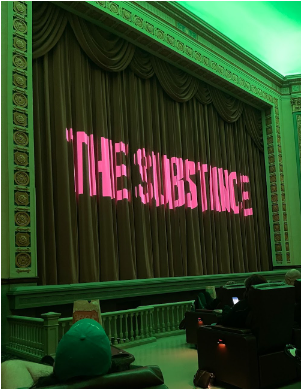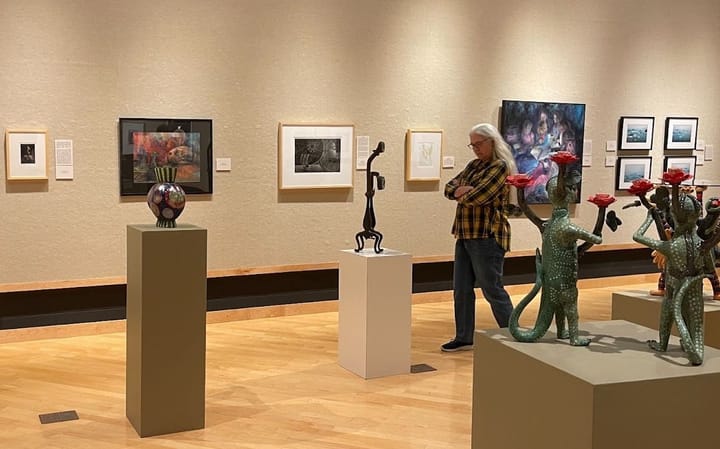Taylor Swift’s new album requires second listen

Taylor Swift fans had plenty of excitement on Feb. 4, 2024. Not only did Swift win her 13th Grammy, this time for “Best Pop Vocal Album,” but she also announced the upcoming release of her newest album: “The Tortured Poets Department.”
On April 19, Swift’s 11th studio album hit streaming platforms. According to IMDb, “The Tortured Poets Department” is set to clear more than 2 million equivalent album units in its first week, Swift’s first time selling more than 2 million albums in a single week.
Despite the hype surrounding the album and its apparent success, “The Tortured Poets Department” ultimately felt difficult to listen to compared to her previous albums and did not immediately grab my attention.
The album features 16 songs with a variety of different themes and thoughts — from reflections on breakups to embracing newfound freedoms.
But, in true Swift fashion, at 2 a.m. ET, just two hours after releasing her new album, Swift took to her Instagram, saying, “I’d written so much tortured poetry in the past 2 years and wanted to share it all with you, so here’s the second installment of TTPD: The Anthology, 15 extra songs.”
In total, the double album consists of a whopping 31 songs. I will be reviewing the first 16 songs in the main album.
“The Tortured Poets Department” continues to carry a mood similar to “Midnights,” showing Swift’s maturing perspective since her 2006 self-named debut album; however, she continues to hold on to some of her hallmarks, including using music to tackle and express her feelings about relationship beginnings and endings.
During my first listen to the album, I found that a lot of the songs ran together. Some of the songs had similar topics and most were slow in nature while not being experimental in other aspects to differentiate themselves. A lot of the songs on this album had parts that seemed reminiscent of previous songs from different eras. Upon the second listen through, though, the songs became more distinct and began to stand out.
The title track is “The Tortured Poets Department,” composed by Swift and producer Jack Antonoff. In the song, Swift discusses a love story between a man and a woman, where the woman is chasing after the man — reasoning that she would love him best. Featuring a relaxed ballad tone with breathy high notes, the title track offers a slow story and easy melody. As a result, the song feels less distinctive to other songs and weak compared to previous title tracks.
Knowing it would not be a Taylor Swift album without a song about an ex, Swift includes two on this album: “So Long London” and “The Smallest Man I Know.”
“So Long London” includes soft and slightly slowed vocals that compete with the beat of the song, which sounds like a heartbeat.
“The Smallest Man Who Ever Lived” seems to relate to the relationship in “So Long London,” as Swift is asking the ex what the point of the relationship was when it no longer worked. Beginning with a soft opening, the track continues to build and matches the emotions the lyrics portray.
Both of these songs are farewell songs to a relationship of Swift’s life, allowing her to tell her story, and they do not miss on delivering the emotions associated with this kind of topic.
Although not the same as a song about an ex, Swift writes about perseverance and the toll that it can take on a person in “I Can Do It With a Broken Heart.” In this fast-paced song with a steady beat, Swift explores the pressures she experienced as she was called to perform while she dealt with personal challenges in private, namely her break up with Joe Alwyn, her boyfriend of six years. Swift chose to continue performing her anticipated Eras Tour Performances while she came to terms with this breakup.
Swift sings a cheerful tone throughout “I Can Do It With a Broken Heart” and adds a playful techno instrumental during the chorus while dropping her voice to a more reminiscent tone during the verses. All of these choices serve to convey the story of the song and show Swift's abilities to create stories through her songs using multiple aspects, including vocals, tones and instrumentals.
Changing directions, “Fresh Out The Slammer” discusses freedom and fresh starts. Using phrases like, “I did my time,” creates the idea of being locked up and being “fresh out of the slammer” hints that she is newly released. Beyond just being about fresh starts, the song moves towards ideas about rebounding after a break up. Mainly, the song speaks about knowing exactly who the narrator is going to after she’s released from the slammer.
However, “Fresh Out The Slammer” shifts to a different rhythm about two-thirds into the song, which feels out of place and creates an odd listening experience. The idea behind this change in rhythm is to show Swift running to the man’s house, creating a slowing rhythm and a sense of safety. This change seems to come out of nowhere and breaks the expected flow of the song. It seems to combine two separate parts into one song and feels like an author combining two separate chapters into one.
“The Tortured Poets Department” is an album full of Swift’s experiences and the heavy, complicated emotions that accompany her life. While Swift continues to produce songs rooted in emotions and stories, this album may require more time to grow on the listener.
With the 16 songs present, it is easy on the first listen through for a lot of the songs to blend together. Despite that, there are some hidden gems found throughout the album, which allows listeners to connect to them — if they are willing to look.



